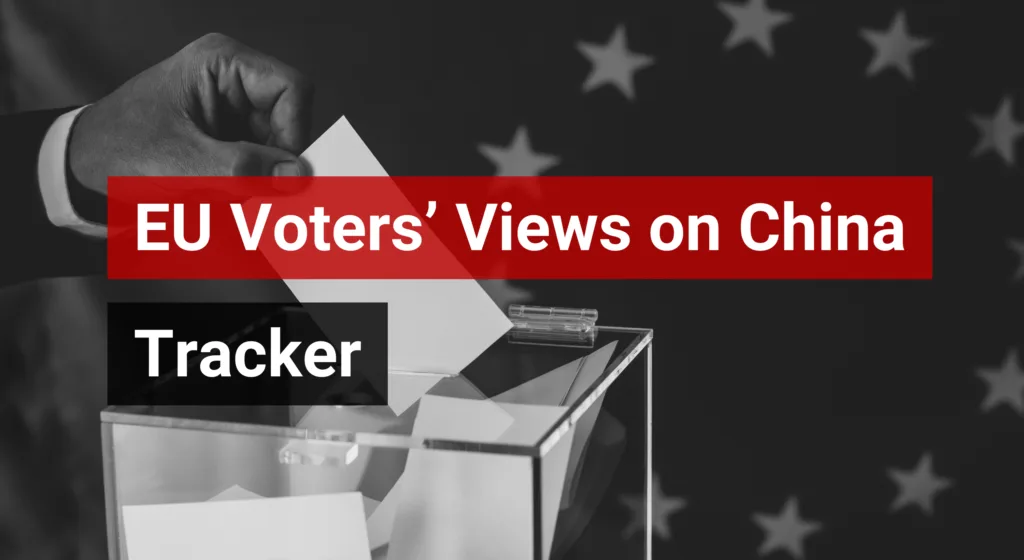How do voters of political parties in the EU view China? Insights from 2020-2025 public opinion surveys in 16 EU countries
This interactive tracker provides both general and also very granular perspectives regarding EU voters’ attitudes towards China. The data is taken from unique public opinion surveys conducted in 16 EU countries in 2020, 2022 and 2025 by CEIAS and the Sinophone Borderlands Project.
As such, the tracker allows us to compare the positions of major EU political parties vis-a-vis China, while also zooming in on each political party. The tracker also allows data to be filtered for a specific country and political groups within the European Parliament based on the fractions in the current European Parliament that was elected in June 2024.
About the public opinion surveys
2020 survey data: The anonymous survey was conducted online between July 28 and October 7, 2020 in Sweden, France, Spain and Italy. This survey was conducted under the Sinophone Borderlands project, an academic research focused on public opinion on foreign policy issues and public attitudes towards important countries in world politics, with special emphasis on China and its international politics.
2022 survey data: The anonymous survey was conducted online between August 15 and October 15, 2022 in Portugal, Romania, Finland, Greece, Latvia, Denmark, Austria, and Belgium. This survey was conducted under the Sinophone Borderlands project, an academic research focused on public opinion on foreign policy issues and public attitudes towards important countries in world politics, with special emphasis on China and its international politics.
2025 survey data: The anonymous survey was conducted online between 14 February and 9 March 2025 in Czechia, Hungary, Poland and Slovakia. This survey was conducted under the project “Investigating China-related narratives in the Central European information space,” implemented by CEIAS in cooperation with the Matej Bel University, and supported by the European Media and Information Fund (EMIF).
All the surveys were conducted in partnership with NMS Market Research based in Prague, Czech Republic. Each sample included over 1500 respondents representative of gender, age (18–70 in the case of 2020; 18–65 in the case of the 2022 and 2025 surveys), education, settlement size, and region. Feelings towards countries/entities have been measured on a 0 (negative) to 100 (positive) scale. The responses were coded as “very negative” (0-20); “negative” (21-45); “neutral” (46-54); “positive” (55-79); “very positive” (80-100).
(Note: embedded window can be enlarged to a full screen)
The tool shows data regarding:
- general attitudes towards China and preferences regarding strategic alignment with China
- attitudes towards specific China-related aspects, including perceptions of the importance of China’s economy for a given European country, views on China’s military power, assessment of its foreign policy, China’s cultural attractiveness, and the quality of life in China
- preference for European countries’ foreign policy priorities towards China, including a focus on human rights and the promotion of democracy, addressing cybersecurity issues, promotion of trade and investment, preventing China’s geopolitical expansion and cooperation in terms of global issues, such as health and climate change
Users can explore the data using the filtering options on the left panel. Filters allow viewers to:
- Compare favorability towards specific foreign policy preferences or China-related aspects.
- Narrow down responses by specific country to see national-level differences.
- Select a political group to analyze ideological trends in China’s perception.








